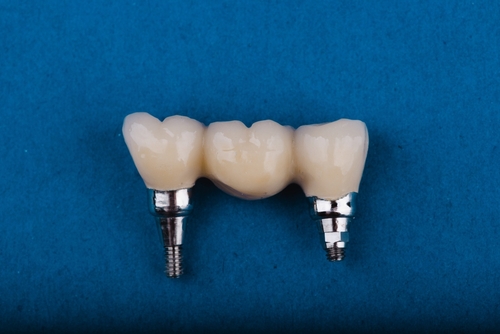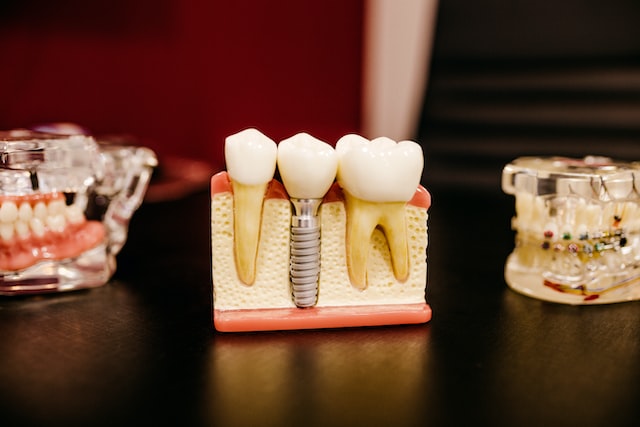Sensitive teeth – it’s not exactly a hot topic on everyone's lips.
On the other hand, conversations around food sensitivities are stealing the limelight. If you listen to the chitter chatter in a standard Melbourne café, you’re bound to hear about some kind of food intolerance. Whether it’s gluten, dairy or animal products, it appears almost everyone has advice on what we should or shouldn’t be eating.
So when it comes to sensitive teeth, why is nobody speaking up about it? The truth is, sensitive teeth are a common dental issue that shouldn’t be shamed.
Here at Mulgrave Dental Group, we believe oral health needs to be spoken about more often! So for those living with sensitive teeth, here is an informative guide on everything you need to know.

What Causes Sensitive Teeth?
In most cases, sensitive teeth are the result of worn down tooth enamel. Some people naturally have thinner tooth enamel, therefore are more prone to sensitive teeth.
Tooth enamel is made of non living cells, which means if it gets damaged, it cannot repair itself. That’s why it’s so important to look after your tooth enamel with a healthy diet and a good oral hygiene routine.
There are a number of reasons why your tooth enamel may be thinning. These include:
- You brush your teeth too much or too hard
- You toothbrush is too hard
- You grind your teeth at night
- You eat or drink a lot of acidic foods and drinks
- You have gastroesophageal reflux (GERD), gastroparesis or bulimia. These conditions that cause frequent vomiting expose the tooth enamel to acid and overtime can wear it down.
While damaged tooth enamel is the most common reason people experience sensitive teeth, tooth sensitivity can be a symptom of much more serious dental issues. Some other causes include:
- Tooth decay
- Broken or chipped teeth
- A worn filling
- Gum disease
You may also experience temporary sensitivity after a dental treatment such as teeth bleaching, a dental filling, dental crowns or veneers. Due to the invasive nature of these types of procedures (filing down teeth etc.) it’s not uncommon to feel a slight discomfort to the specific tooth treated. The pain should subside approximately one week after the procedure. If not, be sure to check in with your dentist.

What Triggers Sensitive Teeth?
Sensitive teeth can be triggered by a number of things. While some people may experience mild sensitivity to certain triggers, others can experience intense discomfort on a regular basis.
Some of the most common triggers include:
- Hot foods and drinks
- Cold foods and drinks
- Rinsing mouth with cold water
- Cold air
- Sweet foods and drinks
- Sour foods and drinks
- Acidic foods and drinks
- Brushing or flossing
- Using an alcohol-based mouthwash
What Treatments Are There For Sensitive Teeth?
In most cases, treating sensitive teeth is simple and affordable.
If you’re experiencing a mild case of tooth sensitivity, here are a few ways to reduce the effects:
- Stop using standard toothpaste as these can have harsh or irritating ingredients. Instead, choose toothpaste made for sensitive teeth.
- Use an alcohol-free mouthwash.
- Stick to the two-minute brushing rule. Any longer can wear down the tooth enamel.
- Use a softer toothbrush and start brushing more gently.

If you have tried all the home remedies and cannot feel an improvement after approximately 7 days, you may have a more severe case that requires help from your dentist.
Once your dentist has had a look at your teeth and detected the problem, he/she can then tailor the treatment to suit your needs. You may require prescription toothpaste or mouthwash or you may need to apply a special fluoride gel.
Alternatively, your dentist may discover the underlying problem to be a cavity, worn filling or gum disease, in which he/she will need to treat accordingly.
Here at Mulgrave Dental Group, we believe oral health impacts our overall health and wellbeing. That’s why we take sensitive teeth seriously.
If you’re experiencing sensitive teeth, book an appointment with us today so we can help reduce the discomfort and improve your quality of life! Call us on (03) 9562 5156.
Smile Makeover Client
Your Healthier Smile Awaits
Whether you're looking to improve your dental health or enhance your smile, we're here to help. Book an appointment with Mulgrave Dental Group today!
Book Now


